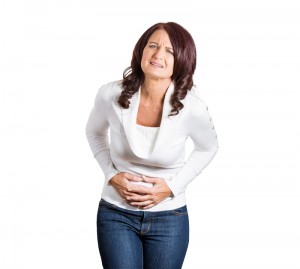
Don’t Stress Out Your Bones!
 At some point in our lives we are all faced with stressful situations or experience anxiety, depression or loneliness. Stress is synonymous with modern living! Although short term stress can lead to tension and unpleasant symptoms, prolonged or chronic stress can put you at risk for numerous health problems, including bone loss. Part of the body’s response to stress is to release a powerful hormone call cortisol.
At some point in our lives we are all faced with stressful situations or experience anxiety, depression or loneliness. Stress is synonymous with modern living! Although short term stress can lead to tension and unpleasant symptoms, prolonged or chronic stress can put you at risk for numerous health problems, including bone loss. Part of the body’s response to stress is to release a powerful hormone call cortisol.
Cortisol is essential to human survival and for adaptation to stress, but prolonged levels of cortisol in the bloodstream can have many negative effects including: impaired cognitive performance, blood sugar imbalances, elevation of blood pressure, suppression of immune function, and muscle and bone tissue breakdown. The secretion of cortisol in times of stress, has been shown to have a negative impact on bone remodeling. Bone is a living, dynamic tissue that is constantly remodeling itself. This process is regulated by 2 different types of bone cells: osteoclasts which breaks down old bone tissue, and osteoblasts which aid in depositing new bone tissue. Cortisol release in response to stress reduces the ability of osteoblasts to form new tissue and increases the rate of bone breakdown by osteoclasts. The end result is bone loss!
Sustained elevation of cortisol impairs the absorption of calcium from the intestines and accelerates calcium excretion in the urine. Stress also increases the body’s need for magnesium and prolonged stress is a major cause of magnesium deficiency. Magnesium is critical to bone health for several reasons. It is necessary for converting vitamin D into its active form of D3, which in turn plays a key role in our ability to absorb calcium from the intestines. Magnesium also stimulates the release of calcitonin, a hormone that helps to preserve bone structure by maintaining proper levels of calcium within our blood stream.
Prolonged stress levels can lead to depression. Studies show that depression induces bone loss and increases the risk of osteoporotic fractures. It is thought that the increase in cortisol secretions in people suffering with depression results in bone breakdown and loss of bone mass. A diagnosis of depression needs to be considered a risk factor for developing osteoporosis.
Because stress and depression are linked to poor bone health, it’s not enough to just discuss the importance of diet, exercise and supplements when treating osteoporosis. A truly effective holistic program must include stress reduction as well. Because stress in our modern society is inevitable, learning to control your stress levels is critical to preserving your bone health. Luckily, there are many things you can do to help control and negate the adverse effects of stress!
8 Ways to Reduce your Stress
1. Identify the sources of stress in your life and learn how to avoid, alter, adapt or accept them.
2. Focus on eating a nutrient rich diet that will not only aid in helping you feeling emotionally balanced but will also provide the additional calcium and magnesium needed for your bones during times of stress.
3. Deep breathing exercises. Long deep breaths help promote relaxation and good digestion.
4. Find a relaxation technique that works for you: Prayer, meditation, progressive muscle relaxation, guided imagery or visualization can facilitate relaxation, decrease blood pressure and pulse rate, improve circulation and decrease the secretion of cortisol.
5. Consider journaling to help you better understand your thoughts and emotions. Journaling can also serve as an emotional release and help you get rid of negative thoughts.
6. Make a good night’s sleep a priority by practicing good sleep habits such as establishing a sleep routine, making sure your room is cool and dark, avoiding stimulating TV or books and caffeine, sugar or alcohol prior to bedtime.
7. Practice gratitude by taking a moment to reflect on all the things in your life that are good, including your own positive qualities and gifts.
8. Do something for yourself every day that you enjoy and makes you happy!
The human body is designed to handle occasional stress, but chronic stress is bad for the bones! Reducing the negative effects of stress on your body will not only help all aspects of your health, but also help promote strong, healthy bones for life!





